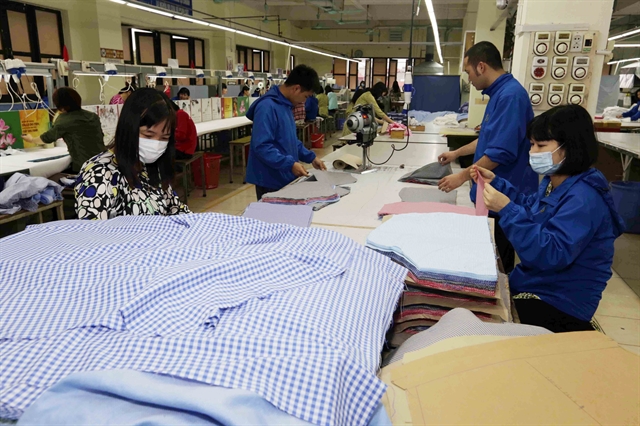The Ministry of Industry and Trade is drafting a circular on guidance for safeguard measures for apparel sector under CPTPP.

The Ministry of Industry and Trade (MoIT) is drafting a circular providing guidance for the application of safeguard measures for textile and apparel products under the Comprehensive and Progressive Agreement for Trans-Pacific Partnership (CPTPP).
CPTPP is the first “new-generation” free trade agreement (FTA) that Viet Nam has signed. It officially took effect on January 14 this year.
With 11 member countries and high tariff reduction commitments, the use of legal tools to protect the domestic industry is likely to occur. Therefore, the ministry said it was essential to issue guidelines for measures to safeguard against the risk of increasing imports. They include transitional and emergency action measures.
The transition period for Viet Nam’s textile and apparel products is up to five years. During this period, Viet Nam can employ transitional and emergency measures when the investigating authority concludes there is an absolute increase in imports or an increase relative to domestic production from one or more member countries as the result of tax cuts under CPTPP. The measures can also be applied if the domestic manufacturing industry suffers serious damage of threat of such damage.
Transitional measures can include the suspension of tax cuts for textile and garment products under the agreement or increasing the tax rate but not exceeding the most favoured nation (MFN) rate effective at the time of applying the measure or the MFN rate effective on the day prior to the valid agreement, whichever is lower.
Transitional measures can be applied for two years and can be extended for one more year if the investigating agency concludes it is necessary to prevent or remedy serious damage and facilitate the adjustment of the domestic manufacturing industry.
If the measures are applied for more than one year, the ministry must gradually loosen the safeguards over time.
For emergency measures, investigative work must finish within six months of beginning. In special cases, investigations may last up to nine months.
Emergency measures include increasing tax rates on imported apparel but not exceeding the MFN rate effective at the time of applying this measure or applying the MFN rate effective on the day prior to the valid agreement, whichever is lower. Emergency action cannot exceed two years and may be extended another two years.
The draft circular is open for public comment on the ministry’s website.
Building regulations for trade remedy measures is one of the MoIT’s key tasks for the rest of this year in order to strengthen investigative industries and protect the Vietnamese manufacturing industry as new-generation FTAs come into force and protectionism rises around the world. — VNS





